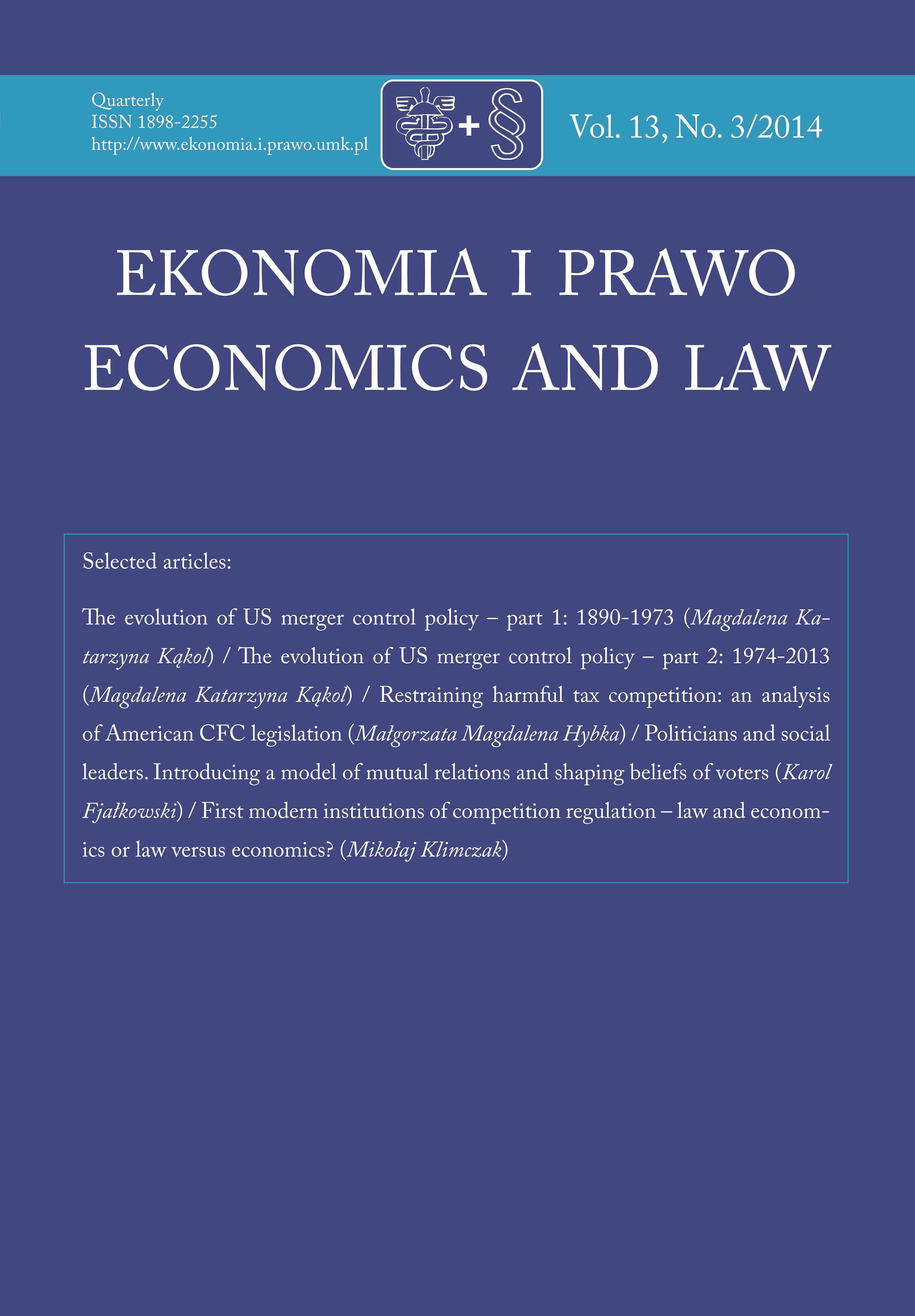THE EVOLUTION OF US MERGER CONTROL POLICY – PART 2: 1974-2013
THE EVOLUTION OF US MERGER CONTROL POLICY – PART 2: 1974-2013
Author(s): Magdalena KakolSubject(s): Economy, National Economy
Published by: Wydawnictwo Naukowe Uniwersytetu Mikołaja Kopernika
Keywords: mergers; merger control policy; US antitrust; theory of competition
Summary/Abstract: The aim of the study is to present the changes in US merger control policy at different stages of development of competition theories and views on pro- and anti-competitive effects of mergers (especially Harvard, Chicago, and Post-Chicago Schools of Competition). The research methods used in the study include literature review as well as the in-depth analysis of US legislation, antitrust agencies' enforcement policy and federal courts' adjudication practice with focus on changes in the economic analysis of mergers and their impact on market competition. This part of the study covers the period from the mid 1970s to the present time and comprises two stages of the development of US policy towards mergers. In the 1980s the Chicago School theories, efficiency primacy and minimum intervention principle prevailed in US antitrust policy. From the 1990s under the influence of Post-Chicago approach which no longer assumes that markets work perfectly the antitrust agencies have been more eager to intervene to block some (even vertical) mergers with potential anticompetitive effects (though the level of this intervention could be hardly compared with that of the 1960s). US merger enforcement policy has become more interdisciplinary with a more flexible approach to economic analysis as regards applied methodology which should be tailored to each transaction and supported by empirical evidence. Apart from consumer welfare its priority is protecting competitive process in the market.
Journal: Ekonomia i Prawo. Economics and Law
- Issue Year: 13/2014
- Issue No: 3
- Page Range: 417-430
- Page Count: 14
- Language: English

